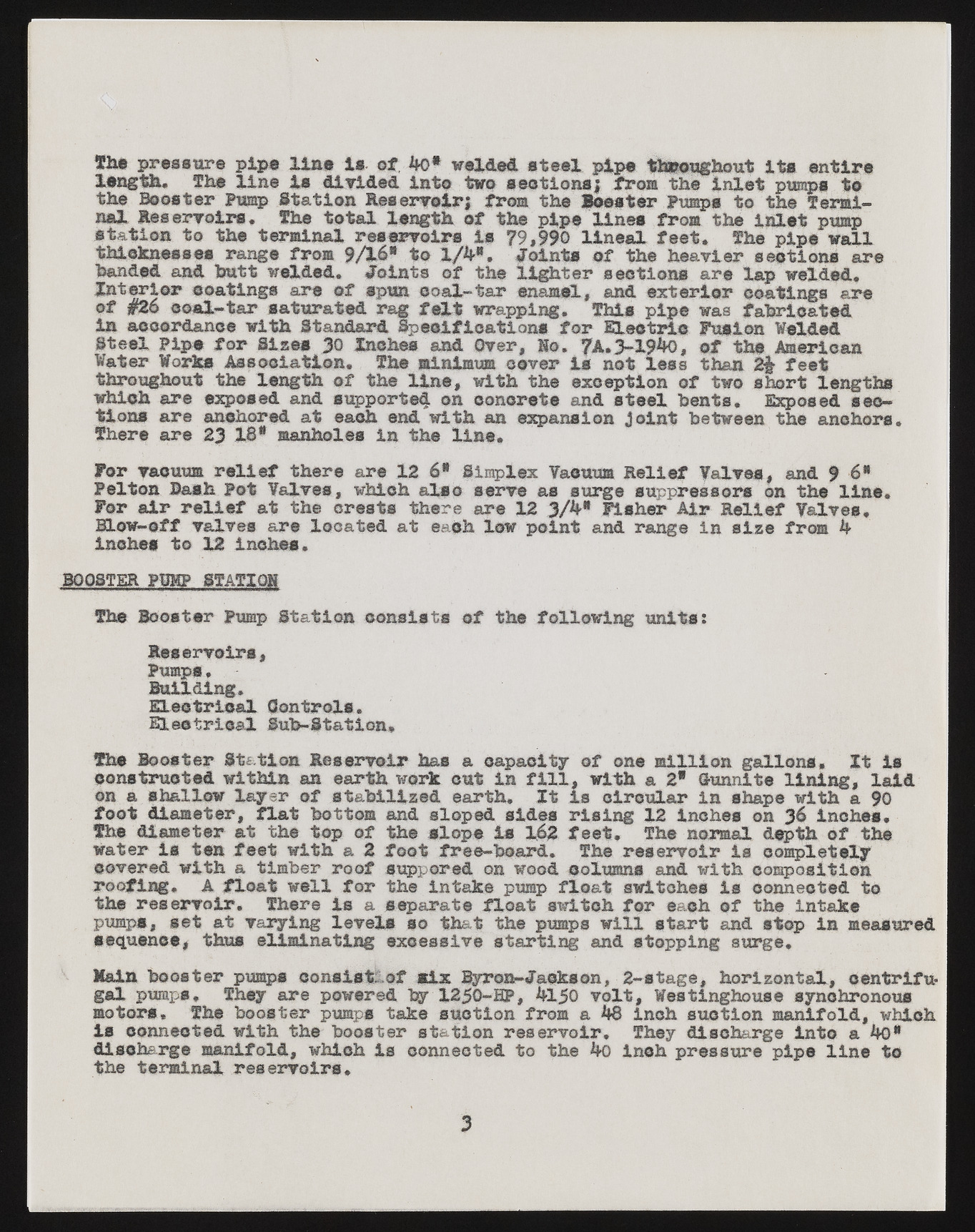Copyright & Fair-use Agreement
UNLV Special Collections provides copies of materials to facilitate private study, scholarship, or research. Material not in the public domain may be used according to fair use of copyrighted materials as defined by copyright law. Please cite us.
Please note that UNLV may not own the copyright to these materials and cannot provide permission to publish or distribute materials when UNLV is not the copyright holder. The user is solely responsible for determining the copyright status of materials and obtaining permission to use material from the copyright holder and for determining whether any permissions relating to any other rights are necessary for the intended use, and for obtaining all required permissions beyond that allowed by fair use.
Read more about our reproduction and use policy.
I agree.Information
Digital ID
Permalink
Details
More Info
Rights
Digital Provenance
Publisher
Transcription
pressure pipe Ha* lg. of 40# welded steel pipe throughout its entire length The line is divided into tiro sectional from the inlet pumps to the Booster Pump Station Reservoir; from the Booster Pumps to the Terminal Reservoirs. The total length of the pipe lines from the inlet pump station to the terminal reservoirs is 79,990 lineal feet. The pipe wall thicknesses range from 9/16* to 1/4°. Joints of the heavier sections are handed and hutt welded. Joints of the lighter sections are lap welded. Interior coatings are of spun coal-tar enamel, and exterior coatings are of #26 coal-tar saturated rag felt wrapping. Thle pipe was fabricated in accordance with Standard Specifications for Electric fusion Welded Steel Pipe for Sizes 30 Inches and Over, Ho. 7A. 3-1940, of the American Water Works Association. The minimum cover is not less than 2§r feet throughout the length of the line, with the exception of two short lengths which are exposed and supported on concrete and steel bents. Exposed sections are anchored at each end with an expansion Joint between the anchors. There are 23 18® manholes in the line* for vacuum relief there are 12 6" Simplex Vacuum Relief Valves, and 9 6* Peltoa lash Pot Valves, which also serve as surge suppressors on the line. For air relief at the crests there are 12 3/4* Fisher Air Relief Valves, Blow-off valves are located at each low point and range in size from 4 inches to 12 inches. BOOSTER FQHP STATIOH The Booster pump Station consists of the following units: Reservoirs, Pumps, Building. Electrical Controls. Electrical Sub-Station, The Booster Station Reservoir has a capacity of one million gallons. It is constructed within an earth work cut in fill, with a 2* Gunnite lining, laid on a shallow layer of stabilized earth. It is circular in shape with a 90 foot diameter, flat bottom and sloped sides rising 12 inches on 36 inches. The diameter at the top of the slope is 162 feet. The normal depth of the water is ten feet with a 2 foot free-board. The reservoir is completely covered with a timber roof suppored on wood columns and with composition roofing. A float well for the intake pump float switches is connected to the reservoir. There is a separate float switch for each cf the intake pumps, set at varying levels so that the pumps will start and stop in measured sequence, thus eliminating excessive starting and stopping surge. Wain booster pumps consistlof mix Byron-Jacks on, 2-stage, horizontal, centrifugal pumps. They are powered by 1250-HP, 4150 volt, Westinghouse synchronous motors. The booster pumps take suction from a 48 inoh suction manifold, which is connected with the booster station reservoir. They discharge into a 40® discharge manifold, which is connected to the 4o inch pressure pipe line to the terminal reservoirs. 3

